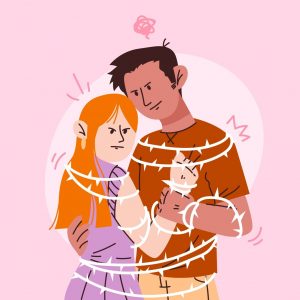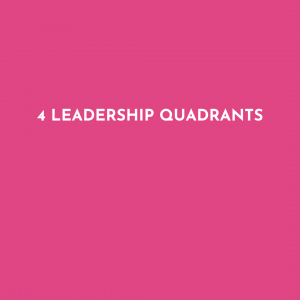Friendships are beautiful. But like every other beautiful thing, they hardly last forever. Friendships grow apart, and outgrowing friendships can be a foreign concept to most people. However, it happens more frequently than we know.
Is it your fault that you outgrow a friendship? How can you navigate the situation on your part? What can you do to help the other friend? You will find answers to these questions and more as you read on.
Introduction to Growth and Friendship Dynamics
Life is a journey for us all. But it is a unique journey for each of us–one that requires us to carve a path for ourselves. This adventurous navigation sure comes with its twists and turns. As we move on, we find that our personal growth becomes an important part of the journey.
But what is personal growth? We can describe it as the process of improvement and development that cuts across all aspects of our lives. When you experience personal growth, the spiritual, social, mental, emotional, and physical all grow. This improvement and its extent are often due to personal experiences, education, values, goals, beliefs, and relationships.
Friendships are among many relationships we rely on to get us through this journey. But like our journey, even friendships are not exempt from the ups and downs of life. The changes in our lives, either positive or negative, tend to affect our relationships with those we call friends. This often makes us outgrow a friendship.
Patterns and levels of interaction and communication with your friends might change due to personal growth. When this happens, it influences friendships in different ways. For example, it can improve the friendship by creating mutual support, respect, and trust. Similarly, it can also deteriorate the situation, with friends now having less in common. Finally, it may lead to the termination of the friendship, either amicably or bitterly.
Signs You’re Outgrowing a Friendship
Friendships grow apart. But it’s not strange to be unaware of the fact that you are outgrowing a friend or have outgrown a friendship. This is even more common in situations where it is not intentional. But it is better to be aware of such situations so you can take charge and better control how it plays out.
Shift in values, interests, and communication patterns.
The first sign you are outgrowing a friendship is when you notice shifts in your values, interests, and communication patterns. Our values are the guiding principles behind our actions and decisions in life. They are interconnected with our interests, which are the things we love doing or learning about. Communication patterns are the ways we express ourselves and interact with people.
Personal growth often comes with new or different interests and values. However, your friend may not share or support such interests and values. This might be because they have their preferences or simply do not share your convictions. When this happens, it creates a gap between you and your friend, making communication harder and unenjoyable.
Emotional distance and changing priorities
Friendships are designed to provide emotional support. But this can become impossible due to one or both friends’ personal growth. When you grow as an individual, you may feel less attached to, interested in, or invested in your friend. You may also find that you now trust and respect them less because of these differences.
Your priorities are also changing with growth. Those things that used to mean a lot to you are no longer your priorities. These may include what you and your friends share and hold dear. The disconnection eventually translates to weaker connections and communications.
For example, if you now prioritize your work over the playtime you and your friend often share, it means you have less in common. It can lead to growing apart and eventually outgrowing each other. These are all indications that you have outgrown a friendship.
Understanding the Emotional Impact
Outgrowing friendships have different effects on the parties involved, especially the fulfilling and meaningful ones. One effect we need to talk about more is the emotional effect. Changes in friendship dynamics usually come with a range of emotions for the people involved.
Emotions are not strange.
For example, you may feel sad about losing your friend or things not being like they used to. When a close friend leaves your life, there tends to be no one to lay their role. So, sadness automatically sets in.
You may also feel angry at yourself, your friend, or the situation that caused the friendship to end. Resentfulness, bitterness, guilt, and confusion are other emotions you may feel due to a lost friendship.
Deal with the emotions appropriately.
All of the emotions mentioned above are natural and understandable. In fact, it is your way of responding to the change in dynamics. Therefore, it is best to acknowledge your feelings and process them healthily. Do not disregard them or deny their existence. Instead, accept the reality and practice some self-care.
Take care of yourself emotionally, mentally, and physically. If necessary, seek support from family, friends, and others who care about you. You should also learn from the experience by reflecting on your gains and losses from the friendship. Doing all these will help you heal and get you back on track faster.
Communicating When You’ve Outgrown a Friend
In reality, outgrowing a friend can be tough on you and your friend. That is why it is necessary to adopt honest and empathetic communication throughout the process. It will allow both parties to understand and accept the situation at hand.
How do you do this? The first step is communicating your feelings without accusing or blaming your friend. Blames or accusations are unnecessary because the situation is not anybody’s fault, and you must structure communications to reflect that.
The rule of thumb when dealing with a situation where you outgrow people is to use “I” statements instead of “you statements.” It is better to say, “I feel like we don’t communicate properly anymore,” than, “You do not care about me again.”
You should also do away with exaggerations. Keep things simple and straightforward to prevent misunderstandings. The same goes for generalizations and vague statements.
You must also be ready to listen and empathize with your friend. Since your friend is as much involved in this as you, you should respect their choices and boundaries. It is okay to outgrow friends. It means they have goals, interests, and values different from yours. Do not disregard them.
Avoid forcing your friend to align with your goals, interests, and values. Doing this will make them feel you do not care about them or their feelings. Instead, be patient in learning and understanding their feelings without validating their emotions and concerns.
Nurturing Evolving Relationships
Personal growth also means our relationships must evolve to adapt to the new dynamics of our lives. Contrary to what people might think, you can embrace personal growth while nurturing your friendships.
Support their goals; welcome their aspirations.
One of the ways to do this is to support each other’s goals despite being different. Even if you and your friend are now exploring new passions and interests, it should not prevent you from offering encouragement and guidance where necessary.
You should also acknowledge your friend’s accomplishments and aspirations. Be prepared to help them overcome the stumbling blocks they may encounter on their new journey. Doing this helps to foster a positive environment for individual and collective growth.
Appreciate the diversity and differences.
Individual growth comes with new values and perspectives. Fresh opinions, beliefs, and interests will always come up. It is easy to see these as obstacles and sources of conflict. But do not see them as such.
Instead, embrace and learn from them. They can serve as a gateway to learn more about each other and strengthen the shared bond. All you have to do is keep an open mind and be ready to be part of the process.
Explore what you have in common.
An easy way to nurture existing relationships is to focus on what you have in common. It could be a hobby, a goal, or a challenge you are both trying to overcome. Whatever it is, working on it collectively can strengthen your bond.
If you are unsure of these common grounds, feel free to discuss them with the other party. Share your experiences with them; it may just be the start of a new and fulfilling friendship.
Connect with peers, mentors, and role models.
Nurturing existing friendships while undergoing personal growth all by yourself can be demanding. One way to make it easy is to seek new connections and join supportive networks. Connect with role models, mentors, and peers who can provide guidance, feedback, and inspiration. The sense of community you create by doing this can be so crucial on your journey of self-growth.
Embracing Change and Personal Growth
As we mentioned earlier, to outgrow a friendship is normal. It is a natural aspect of personal growth that is bound to happen at one point or another. So, it should not reduce the value of past relationships or limit your chances of future associations.
Every person you meet on your growth journey will contribute to the person you are becoming. Understanding this helps you reduce the guilt and sadness often associated with moving on and forward.
In addition, you should identify and celebrate the positives associated with evolving relationships instead of focusing on the loss. What lessons have you learned? What shared experiences shaped you and helped you grow? Answer these questions honestly.
Once you shift your focus from loss to celebration, it gives room for a more empowering and positive narrative. Remember, feeding your sense of resilience and optimism as you proceed on your journey is important, especially if you plan to go all the way.
Conclusion: Moving Forward Positively
Our discussion so far has established outgrowing relationships as one of the changes that come with personal growth. We now know that outgrowing a friendship due to your personal growth can be painful and challenging but also positive and empowering. How it turns out for you depends on your approach to the situation.
Therefore, you want to approach it the right way. Keep your mind open. Be ready for the emotional impact and deal with it appropriately. Communicate your new position with the other party adequately and try to understand how they feel. Also, explore how to nurture existing friendships to adapt to your new dynamics.
Key Takeaways
Overall, we hope this article has inspired you to embrace your personal growth and move forward positively. While it is a personal journey, it does not mean you are alone. You have the power to create and maintain meaningful and fulfilling relationships despite going on a journey of all-round self-improvement. Reach for this power and maximize it.
We wish you all the best in this quest for personal development and remember, do not be afraid to outgrow friends while at it.











